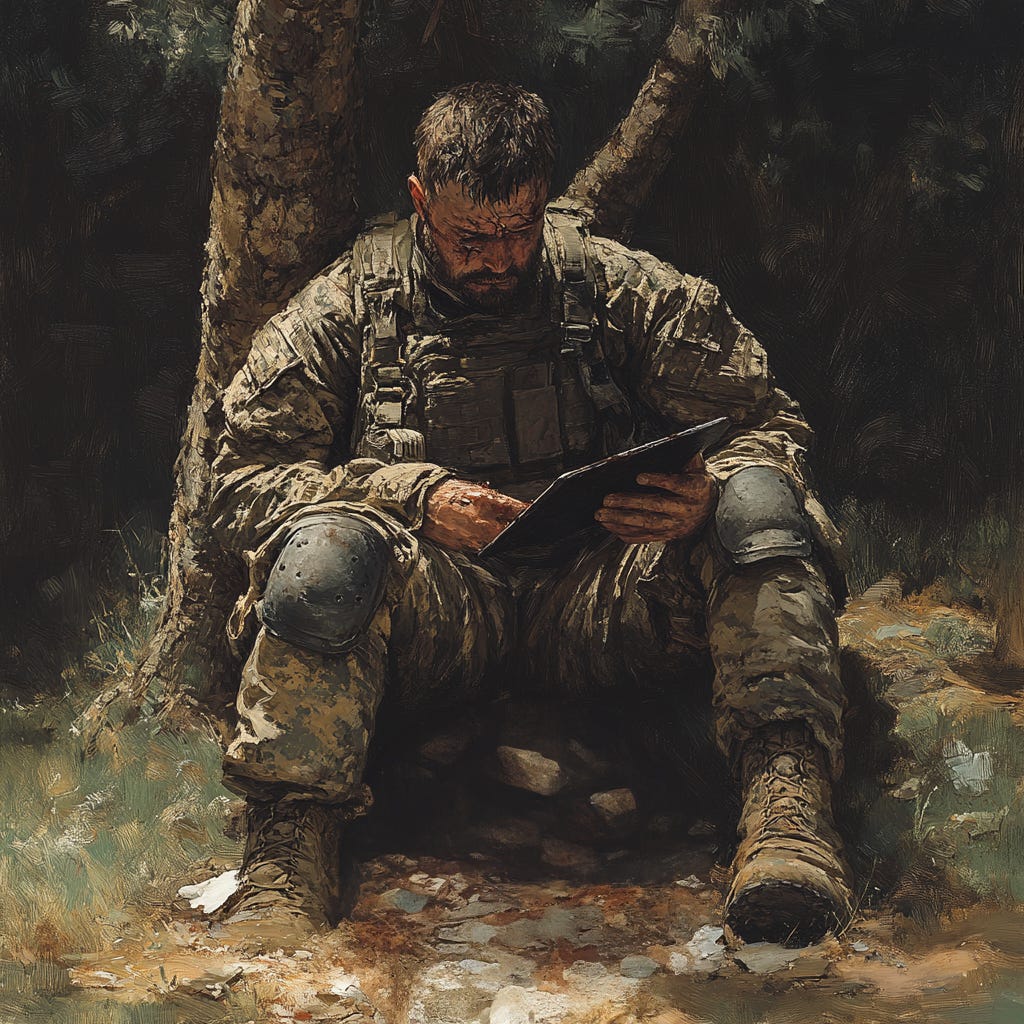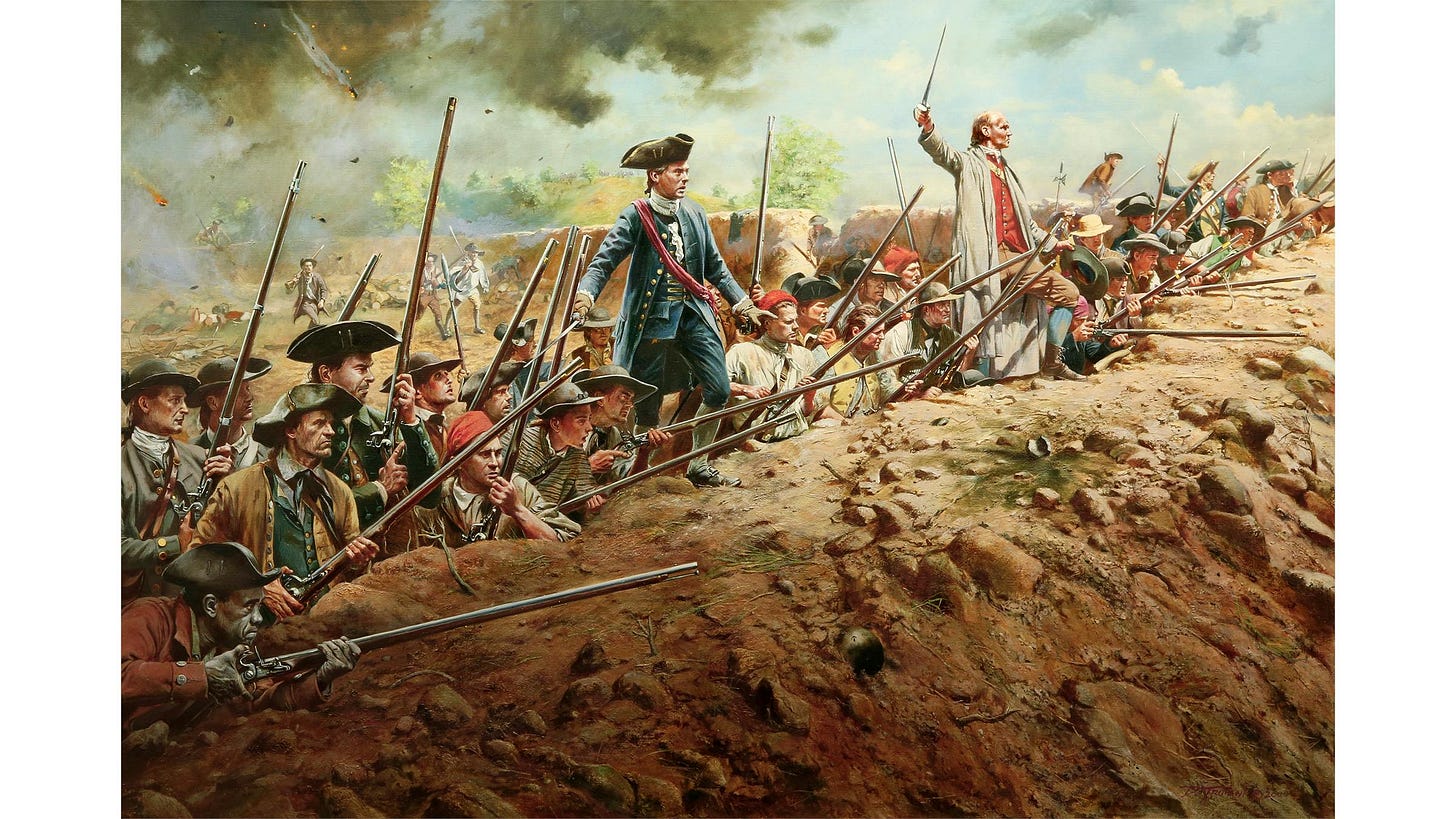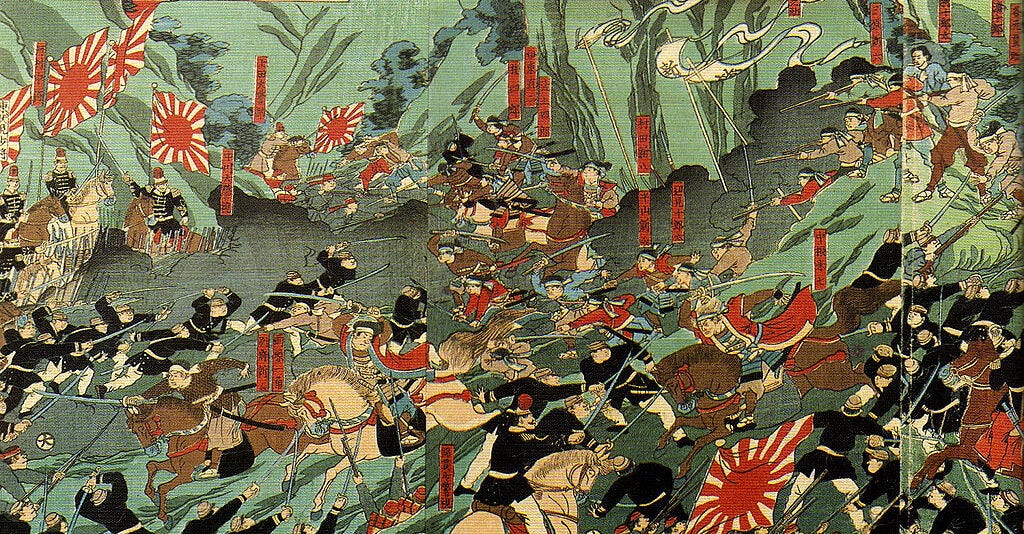Behind the Music: Knives to a Gunfight
Knives to a Gunfight questions the point of taking the field as infantry in a world that has moved to autonomous killer drone swarms.
Intro
In the final part of our “Behind the Music” series, what began as productivity becomes lethality, as “Knives to a Gunfight” confronts the unsettling evolution of AI from trusted tool… to autonomous weapon.
Knives to a Gunfight
Fundamental Question
This track isn't just a nod to the progression of modern warfare we've witnessed in Europe. It questions the point of even taking the field as infantry in a world that has moved to autonomous, agentic drone swarms.
Deeper Discussion
The story is told from the perspective of a solider whose convoy was just hit out of nowhere by a drone strike.
Up against a tree, he’s not off the X just yet- more autonomous quadcopters are hovering about, and one of them seems to have paused nearby, looking for any survivors to auto-lock onto…
A recurring theme in war technology is this drive to minimize personal risk but maximize effectiveness which has the opposite effect of drastically escalating direct and collateral violence due to the emotional detachment.
Even with the advent of better tanks, better planes, better guns, better gear, it still required at least some skin in the game by having to “take the field” as it were, and risk getting shot at/shot down/blown up.
But now there’s something… next level (not in a good way)… about mass-produced, self-driving, self-selecting, individually targeting, disposable kill bots that brings a whole new level of uneasiness to the combat theatre.
It used to be that needing boots on the ground was necessary to physically occupy space, to claim and control territory, to advance. Well now, what’s the difference between a marine on the frontline, and a marine wearing a VR suit 1000km away remotely piloting a robot humanoid?
There’s also something uniquely unsettling about how these smaller drones engage their targets. It's challenging to pinpoint exactly why, but drone warfare feels somehow cheaply personal— far more chilling than traditional forms of indirect attack like artillery barrages or high-altitude bombing.
Contrast this with being methodically stalked by an autonomous quadcopter. A drone, loitering patiently above, while it evaluates and selects individual targets, delivers a deeply intimate and dread-filled experience. It singles you out, tracks your every desperate movement, and waits for the perfect moment to strike—like a mechanical predator playing a cold game of cat-and-mouse.
Even more haunting is the scenario of a young operator thousands of kilometers away, viewing the battlefield through VR goggles. Their presence, once removed, transforms war into a grotesque simulation. For the soldier on the ground, it’s the horrifying realization that your survival is now tied directly to the twitch reflexes of someone who has no direct stake in your reality—someone who may as well be playing a video game from their couch.
It’s that blend of detached intimacy, personalized targeting, and disposable lethality that pushes drone warfare from merely disturbing into the realm of the deeply unsettling.
Lyrical Insights
"How'd we go from whites of their eyes
to watching for lights in the sky"
This line in the chorus was one of the main themes I wanted to drive home. It’s a poignant twist on the historical military maxim "Don't fire until you see the whites of their eyes!" which has debatable origins, but is widely associated with the battle at Bunker Hill during the Revolutionary War.
General Putnam rode through the line, and ordered that no one should fire till they [the British soldiers] arrived within eight rods, nor any one till commanded. “Powder was scarce and must not be wasted. They should not fire at the enemy till they saw the white of their eyes, and then fire low, take aim at their waistbands. They were all marksmen, and could kill a squirrel at a hundred yards; reserve their fire, and the enemy were all destroyed. Aim at the handsome coats, pick off the commanders.” The same orders were reiterated by Prescott at the redoubt, by Pomeroy, Stark, and all the veteran commanders.
I wrote the lyric as a lament of honor due to this increasingly impersonal advancement in technology. The Battle of Shiroyama at the end of the Satsuma Rebellion of 1877 also comes to mind, as 500 remaining samurai faced off against an Imperial force of around 30,000 troops, equipped with modern firearms, cannons, and even American Gatling guns.
Then we have verse two -
Started out with controllers and goggles
Turned that into training models
It slipped the leash, now thinks alone
Left to fight a war of "Should have known..."
I wanted to craft a today, tomorrow, and what’s to come chain of events.
Today, the drones are mostly flown by FPV operators with “controllers and goggles”, but all that telemetry data is also being poured into AI training models with vision and agentic autonomy.
Tomorrow, lethal autonomous weapons are certainly on the way, but the verse goes on to warn us of a third unfortunate outcome - having to defend against your own creation should these systems get hacked, or an AI decides to go rogue a-la Skynet style.
That’s the situation our song’s hero finds himself in… the drone strike wasn’t just from some enemy nation with bunkers full of FPV pilots - he’s fighting a war of “Should have known better” as their own systems “slipped the leash” and are now targeting them.
Well I dunno who runs these things, but
the indiscriminate nature stings, so
if we die on the field today, at least
spare the bytes to record our names
Going into the bridge, our soldier makes a final frustrated request - if the algorithms flipped and are now keen to eradicate their masters, the least they could do is spare a few bytes (memory/hard drive space) to record their names. (I imagined by scanning dog tags.)
It’s a plea for some shred of humanity/dignity/honor for the outmatched infantrymen, who are the metaphorical knives that were brought to this gunfight.
The Path Forward
This, by far, is the most difficult topic to comment on. The scale and speed of change have left even experts unsettled. Soldiers, ethicists, and policymakers are all asking questions that have no satisfying answers.
The cat-and-mouse game is already well under way as measures and counter-measures are being developed. They started using signal jammers, so now they have fly-by-fiber drones that can still strike from miles out. Very soon, we’ll see drones, war dogs, and bipedal soldiers that don’t even need remote guidance. They’ll act like Agentic Death-Waymos with lidar systems and onboard AI rendering them completely autonomous on the battlefield.
But the drones are already baked into conflict. They’ve made distance irrelevant, erased safe zones, and put civilians and soldiers alike under near-constant digital surveillance. With a few lines of code and an off-the-shelf quadcopter, anyone can project force beyond anything imagined by earlier generations.
On the “how this impacts our soldiers on the ground” side of the coin, I have little to offer other than the observation that the dehumanization of soldiers in combat began long, long ago. Drones are just another unfortunate way to die in a long line of booby traps, IEDs, land mines, and all manner and methods that allow for the indiscriminate, zero accountability, low risk ways to take a life.
Nations and international organizations debate Geneva-style rules for drones, but no grand ban or consensus has emerged. The world, so far, seems to be accepting automated warfare as reality, even as many quietly hope for limits that may never materialize.
So what is the path? Maybe for now it’s just to bear honest witness. To refuse to let numbness or euphemism soften what’s happening. To ask hard questions out loud:
Is technological advancement truly making us safer, or just blunting our empathy?
Who is morally accountable when an algorithm makes the kill?
Can humanity survive if it fully outsources the risk (and the guilt) of armed conflict to machines?
For now, there is no tidy operational advice. The best we can do may be to stay awake, stay human, and demand our leaders do the same. Because the more we automate our violence, the more vigilant we must become about holding onto our own conscience.





Exact sentiments- https://x.com/disclosetv/status/1970847254849478880?s=46